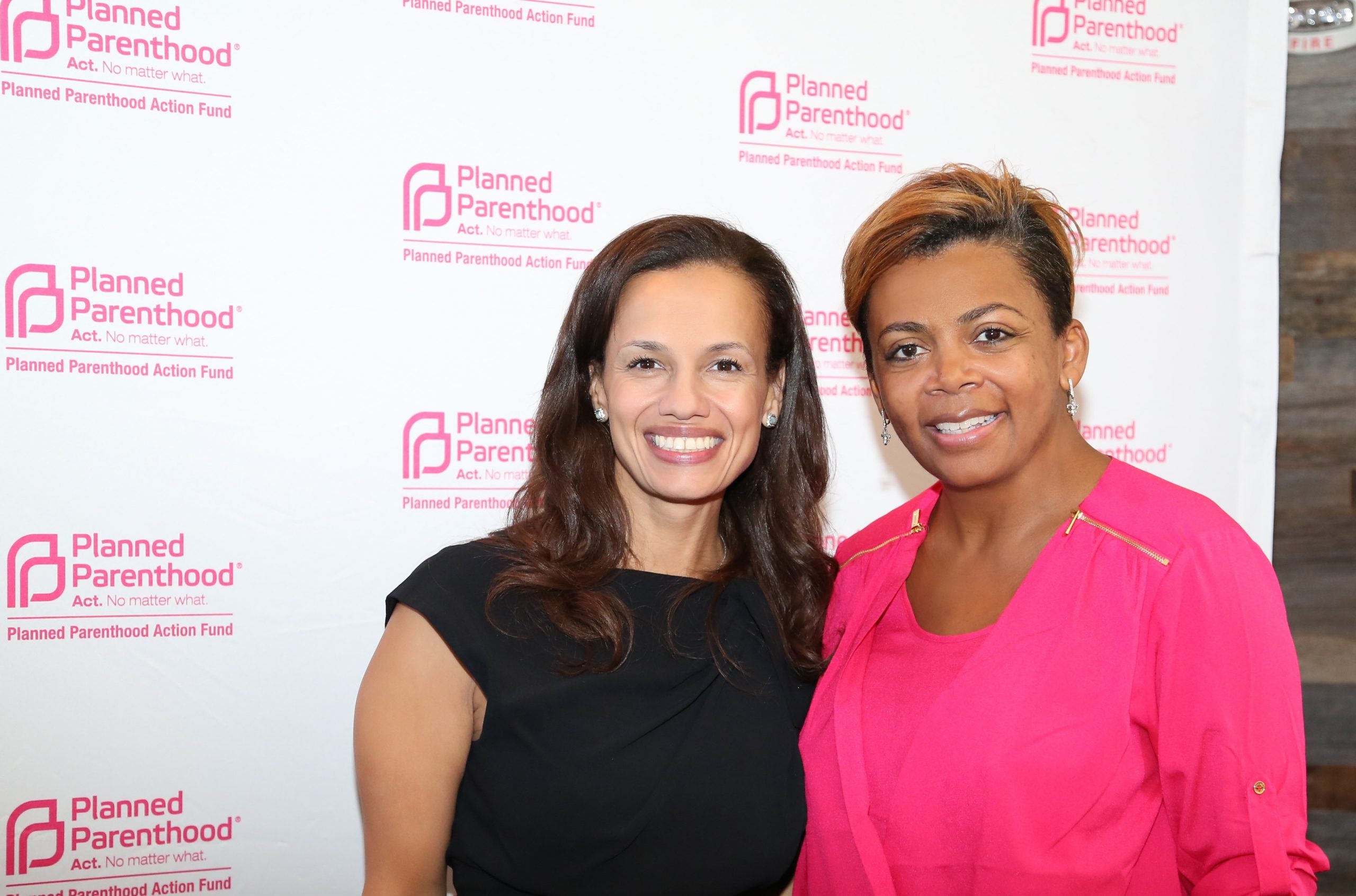We go way back. From our shared campus life experience as young Black women at a predominantly white university thirty years ago to today — trading stories of motherhood and fighting for health access and equity. Our paths, as Black moms of a combined five children, define and inform our work as advocates and providers of sexual, reproductive, and maternal health care.
Then and now, we are bonded by our passion and advocacy for Black people. We’ve seen firsthand how medical racism affects our health and rights. Black women’s health concerns are taken less seriously, often leaving us to advocate for our own health — alone. Through our careers as health care providers and advocates, we know racism is the root cause of many health disparities.
That’s why it is no surprise to us that, weeks into the COVID-19 pandemic, data is painting a clear picture that Black people are dying at significantly higher rates than white people. The pandemic lays bare the inequities that have always existed and have had particularly dire implications for maternal health. The headlines reaffirm what we have already known — the health of Black people is profoundly shaped by structural racism.
Black Maternal Health Week reminds us that the pandemic is an especially fearful time for Black mothers. Hospitals have moved to make changes to prevent the spread of the virus, like excluding partners, doulas, and others who advocate for us when our needs and symptoms are ignored by health care professionals. We know that health care in America has never been just. The same conditions that contribute to increased maternal mortality also make Black communities more susceptible to COVID-19 — and more likely to die from it. In the United States, Black women die from pregnancy-related complications three to four times the rate of white women. This is true no matter how much money we make, how much education we have, or where we live.
As sisters who have shared a journey, we have seen the disparities first hand. We started out at Princeton University and our bond grew deeper as Alpha Kappa Alpha Sorority line sisters. After college, Joia became a mother and medical student. She soon developed a keen interest in the birth equity field — realizing she didn’t see her experiences reflected in the teachings of her textbooks. Alexis had already established a career as a political scientist and an implicit racial bias expert. She was drawn to reproductive health advocacy after seeing a haunting ad against abortion that said “the most dangerous place for a baby is a Black woman’s womb.” It made her think, “We should be free to imagine our own futures — without feeling judgment or fear for what they ultimately look like.”
Sadly, for Black women across the country, the joy of impending motherhood is compounded by the fact that our lives are on the line during or after childbirth. Structural, environmental, and interpersonal racism have led to disproportionate rates of conditions like diabetes and hypertension — which increase our chances of dying as a result of pregnancy and childbirth.
For centuries, and even today, Black women’s bodies have been legislated upon with policies that violate our right to reproductive health care and bodily autonomy — yet the same policymakers are in no rush to enact policies to address this dire maternal health crisis.
We need Congress to support the Black Maternal Health Momnibus Act of 2020 — introduced by Reps. Lauren Underwood (D-IL) and Alma Adams (D-NC), Sen. Kamala Harris (D-CA), and members of the Black Maternal Health Caucus. Among a comprehensive set of regulations and investments to address the crisis in Black women’s maternal mortality, the Momnibus Act will compile data on the underlying social determinants that lead to higher mortality rates, as a way of addressing the racial disparities in pregnancy outcomes among Black women in America.
The bill is endorsed by over 90 reproductive rights and justice organizations, including Black Mamas Matter Alliance, Planned Parenthood, and Black Women’s Health Imperative. We are intentional about cultivating a community-centered approach to this collective goal because it is the community’s grassroots efforts and action that brought this issue to the forefront.
We will eventually get a hold of the COVID-19 pandemic and childbirth will go on; but these problems cannot persist. If we are willing to rebuild the system, so many lives will be saved.
We need policymakers to step up to the plate for our health care, and we need providers to listen to their patients through a racial equity lens to actually make a difference in the disparate health outcomes. It is time not only to listen to Black mothers, but to follow their lead.
—
About the authors:
Dr. Joia Crear-Perry is the Founder and President of The National Birth Equity Collective.
Alexis McGill Johnson is the Acting President and CEO of Planned Parenthood Federation of America.

